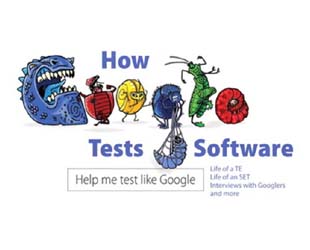Software Testing Articles, Blog Posts, Books, Podcasts and Quotes
In this blog post, Nicolas Frankel explains how to perform unit testing on a database using DBUnit, Spring and TestNG. DbUnit is a JUnit extension for database-driven projects that, among other things, puts your database into a known state between test runs. This is an excellent tool to avoid the issues that can occur when one test case corrupts the database and causes subsequent tests to fail. DbUnit has also the ability to export and import your database data to and from XML datasets.
In this article, Brett Schuchert discusses how modern mocking tools affects positively our ability to work with legacy code and the possible negative implications of using mocking tools. These tools allow us to perform unit testing without actually changing the underlying code. He starts with a discussion about the challenges of unit testing and how mocking tools help to solve them; at least on the surface.
This article explains how Microsoft Fakes perform a similar role than mocking in unit testing, helping you to isolate the code you are testing in Visual Studio by replacing other parts of the application with stubs or shims. A stub replaces another class with a small substitute that implements the same interface. A shim modifies the compiled code of your application at run time so that instead of making a specified method call, it runs the shim code that your test provides.
Many software development projects struggle with creating and communicating a software testing culture that is appropriate for their needs, which might decrease software quality by leaving bugs undiscovered. Previous research suggests that social coding sites such as GitHub provide a collaborative environment with a high degree of social transparency. This makes developers’ actions and interactions more visible and trackable.
Bradley Braithwaite shares in his blog a step by step process to perform JavaScript unit testing in the Eclipse IDE with QUnit and JS Test Driver. QUnit is a powerful, easy-to-use, JavaScript test suite. It’s used by the jQuery project to test its code and plugins but is capable of testing any generic JavaScript. The goal of Js Test Driver is to build a JavaScript test runner that easily integrates with continuous builds systems and allows running tests on multiple browsers quickly to ease TDD style development. Starting from the opening of the Eclipse IDE to writing the tests, everything is explained with code examples. Bradley adds also at the end some productivity improvement tips like code template or avoiding the browser. He also recommends using a tool like JSLint or JSHint to manage code quality. JSLitmus is recommended to profile JavaScript code for performance tuning.
Codan is a code analysis framework that performs code checks on C/C++ projects. It is part of the Eclipse CDT (C/C++ Development Tooling) suite since 2011. Codan was updated with the Eclipse Juno release in June 2012 to enable developers to automatically execute external code analysis tools within Eclipse. In this article, Alex Ruiz explains why the update is good news for users of Eclipse CDT, then shows you how to use Java code and a little bit of XML to quickly integrate your favorite code checker into your Eclipse C/C++ development environment, using Cppcheck as an example. The article provides a detailed step by step process to achieve this goal that requires just about 100 lines of simple Java code and 30 lines of XML.
James Whittaker is a former engineering director at Google and has been responsible for testing Chrome, Google Maps and Google Web Apps. In this book written with Jason Arbon and Jeff Carollo, he describes how Google organizes its software testing process. The Google software testing organization that has three roles: Software Engineer in Test (SET), Test Engineer (TE), Test Engineering Manager.




